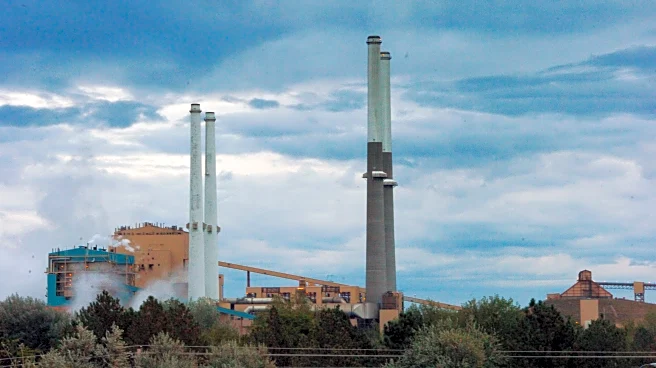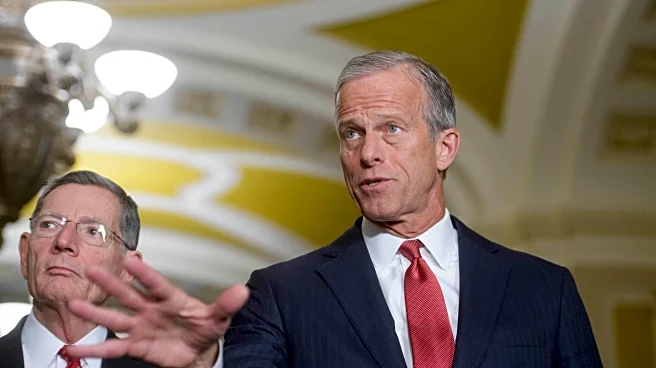What is the story about?
What's Happening?
Hyundai CEO José Muñoz expressed surprise upon learning about a significant ICE raid at the company's EV battery plant in Georgia, which resulted in the detention and deportation of over 300 South Korean workers. The raid, conducted on September 4, was the largest single-site operation in ICE's history. Muñoz, who was in California at the time, stated that he was not informed beforehand, likely due to the plant being operated by South Korea's LG Energy Solution. The incident has strained U.S.-South Korea relations, with video footage showing workers being shackled during the deportation process. Muñoz has been in contact with the Trump administration to address the situation and expressed empathy for the affected workers and their families.
Why It's Important?
The ICE raid at Hyundai's Georgia plant highlights significant issues in U.S. immigration enforcement and its impact on international business operations. The deportation of specialized South Korean workers could delay the plant's startup by two to three months, affecting Hyundai's production capacity and economic contributions in the U.S. The incident underscores the challenges faced by multinational companies in navigating immigration policies and maintaining workforce stability. It also raises concerns about the treatment of foreign workers and the potential diplomatic repercussions between the U.S. and South Korea.
What's Next?
Hyundai plans to continue its expansion at the Georgia plant, investing $2.7 billion to increase production capacity. However, the company faces challenges in replacing the specialized workers deported to South Korea. Muñoz suggested the need for special visas to allow foreign experts to work in the U.S. temporarily, a solution currently unavailable for South Korean workers. The company will need to address these workforce issues to meet its production goals and maintain its economic impact in the region.
Beyond the Headlines
The raid raises ethical questions about the treatment of foreign workers and the balance between immigration enforcement and economic interests. It also highlights the need for clearer policies regarding the employment of specialized foreign workers in the U.S., which could influence future legislative discussions on immigration reform.

















